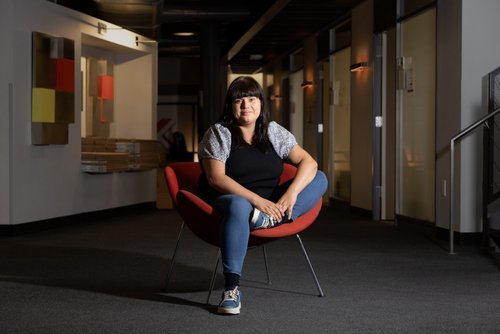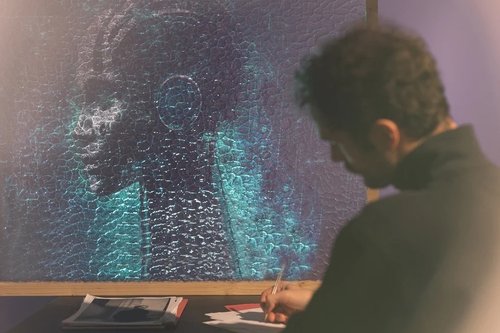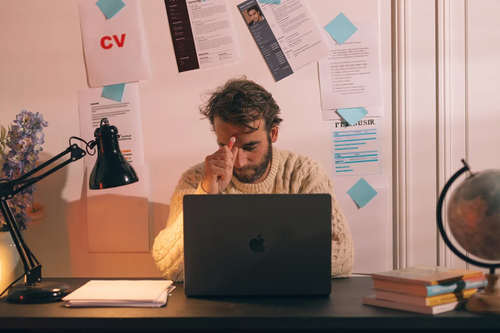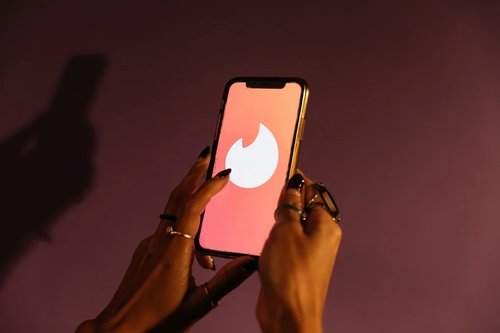Job interviews: why women face more pressure than men
Jun 08, 2020
6 mins

EE
Content producer
A job interview can be highly stressful for anyone. Preparation is vital: there are questions to think about, answers to formulate, and skills to showcase. Then, of course, there’s what to wear. We all have to consider how to present ourselves and the image we want to portray, because first impressions do count.
A recent study revealed that candidates have, on average, six minutes and 25 seconds to impress potential employers during their first meeting. However, studies show that women are far much more likely to be judged on their appearance at interviews than men, which increases the pressure for female job-hunters. Here, three women share their views of the added time, money, and effort involved in preparing for a job interview—just because they are female.
Googling the words “women” and “job interview” brings up page upon page of results comprising women’s magazine tips and “Dos and Don’ts” on how to prepare for a job interview, all based on physical appearance. One goes as far as to insist that “your beauty look has a lot to do with whether or not you land your dream job”.
Is that really the case? Sadly, it seems the answer is yes. A research team at the University of the West of Scotland found that employers—both male and female—are much more likely to judge female applicants on their appearance than men when reviewing their social media profiles. Meanwhile, in another study, more than two-thirds of employers admitted they would be unlikely to hire a female candidate if she was not wearing make-up.
Want that job? It’s going to cost you…
Of course you want to look your best for a job interview, but it doesn’t come cheap. “Your goal should be to convey your competence, neatness, and attention to detail—and all of those things can be communicated through your appearance,” advises a Popsugar magazine article on job interviews. “Unless you have naturally clean, even, hangnail-free nails, get a manicure.” A quick online search reveals that manicures cost upwards of £20 in London. “Mascara and blush are key to a flawless make-up look,” reads a Grazia article on interview make-up.
A recent survey revealed that, on average, women in the UK spend a staggering £482.51 a year on beauty products. Do women feel even more pressure to spend when preparing for an interview? Emma Jones, a senior policy adviser in the civil service, says that the amount of time and money she spends on getting ready depends on how important it is to get the job. “If it’s a big deal, I’d probably get my eyebrows waxed at the weekend. Maybe I’d get my nails done,” said Jones. She adds that she feels it’s expected to wear lipstick and perfume to a job interview, whereas she wouldn’t do this on a daily basis.
About face: the make-up debate
Does makeup really matter? One study found that 70% of employers say the way a candidate applies makeup has an impact on their first impression during the interview. What is the right amount to wear? Jones says that she feels the pressure to strike a balance between “looking nice but not looking like she’s put on loads of make-up” because she feels that overdoing it also has negative connotations.
Zina Alfa, founder of the UnBeweaveable Hair app, says she always wears “natural-looking make-up” to an interview. A 2018 study concluded that women wearing heavy make-up are less likely to be thought of as good leaders. However, another survey found that one in four women had been cautioned about their appearance at work—and “too much make-up” was top of the list, closely followed by skirt length. In 35% of cases when women had been cautioned, employers considered them to be “a distraction” to male colleagues. These two contradictory scenarios—dismissed for not wearing enough make-up but being pulled up for wearing too much—highlight the impossible expectations women face.
Underdressed or overdressed? Too prudish or provocative?
When choosing an outfit for a job interview, it’s important to consider the image you want to portray. Jones says dressing conservatively is something she thinks about. “There’s a right amount of attention I want to draw to my clothes. I want people to see me and think, ‘Oh, that person looks smart and professional’, but I don’t want them to have any thoughts about my body. I would not want to wear anything too low-cut and I wouldn’t wear anything much above knee-length,” she said. It’s much harder for women than men—after all, they just choose a nice suit. “Men can wear the same suit every single day. A different shirt but it can look the same. If you’re in a nice suit, you just blend in,” she said.
When to stand out from the crowd
Dressing to blend in is near impossible for Asha Hussein, who says that she’s been “the only hijabi in the room” in the past. Hussein works for a national newspaper. “When you start to wear the hijab, especially in the news industry—depending obviously on what paper you work for—it can be quite daunting and it can play a part in how confident you are […] Over time my confidence has grown.”
For Hussein, how she presents herself at an interview is a way for her to test the water and work out whether she is going to feel comfortable at that particular organization. “When I left a media organization to go and work for a newspaper, I knew for a fact that I’d not only be the only black girl there, but the only visibly Muslim girl,” she said. “For my interview, I went in and wore an abaya. I don’t normally wear an abaya but I wanted to go in and be, ‘This is me.’ This is what I stand for. You either take it or you leave it. I would rather be unapologetic about my faith.”
The price of ‘professional’ hair
Neat hair is an essential for a professional appearance, for both men and women. However, this seems to involve a lot more time and effort for women, who spend £146.11 on average a year at the hairdresser, compared with men, who spend only £81.39. This outlay rises dramatically for black women, who spend an estimated six times more on haircare than other women. “Recently, I got my hair plaited so I could put my wig on. I didn’t even have it washed, I washed it myself. It cost £52. Box braids on average are about £100,” said Alfa.
It’s different for Jones. “My mum once said to me, ‘If you can do your hair up nicely, do it up, but if you can’t then just brush it.’ And I can’t do it up nicely. So I just brush it,” she said. Alfa says it takes hours to prepare her hair in the morning. “It takes a lot longer to wash and dry [afro] hair. You can’t just wash your hair and then leave it. You have to moisturize it, deep condition it… it takes about two hours to dry your hair.”
“I will have a wig or a weave when I go to an interview because I don’t want stories—in Nigeria, this is a way of saying I don’t want issues. I think a lot of people definitely think the same way.” She adds, “I would never have my hair in braids to go to an interview.”
There are reports of black women losing out on jobs because of their hairstyles. Alfa explains that only recently a woman approached her and explained that during an interview for a role at a London members’ club she was told she would have to change her hair. The candidate didn’t get the job because she wasn’t prepared to do so.
What about grey hair? Will it stand against you at interview? Professor Nichola Rumsey, co-director of the Centre for Appearance Research at the University of the West of England, spoke about the pressure she feels to cover grey hair in The Guardian. “I’m in my late 50s and feel tremendous pressure to cover the grey. You need to have huge self-confidence to stand up to that and deflect it and know that you are still good at your job and will be loved by your family if you don’t fit a certain youthful stereotype,” she said.
When looking at the 2017 Fortune 500 list, this pressure doesn’t seem to affect men. Hundreds of male CEOs have all-grey hair—or no hair at all—but there are just two female CEOs out of 24 with grey-blonde hair.
What does the future hold?
Neela Bettridge has worked as an executive coach for almost two decades. She believes times are changing. “The old bastions of male domination are where you classically see [women being pressured to show up in a certain way]. There are pockets of it that still go on and are not helpful. In the past, financial services were one of those industries. But that is changing. […] What the workplace is going to look like and the very industries people are going to work in are changing. The tech industry—the fourth industrial revolution—it’s the young person’s place of work. They are much more relaxed. They don’t look suited and booted.”
Culture constantly evolves, but ridding society of prejudice and gender expectations requires work at both an individual and institutional level. Despite the 2010 Equality Act, discrimination in the workplace is still prevalent. Alfa says, “The current law says afro hair is protected under the Equality Act, but time and time again these cases are coming out that show that that is not the case.”
Challenging prejudice in an interview is not always an option, especially if you really want that job. “There’s a real need for all staff, all people, to be aware of their unconscious biases. If we are aware of our bias, we are much more likely to be able to navigate that because half the journey on diversity and inclusion is self-awareness,” says Bettridge.
How you present yourself at an interview is entirely personal and it depends on the role you are going for. Whatever you choose to wear, spend or put in timewise, maybe ask yourself this: “Will it really affect my chances of getting this job?”
Photo: Welcome to the Jungle
Follow Welcome to the Jungle on Facebook, LinkedIn, and Instagram, and subscribe to our newsletter to get our latest articles every day!

More inspiration: Follow hiring trends

Hilke Schellmann exposes the flaws in AI that control your next job offer
AI tools promise fairness in hiring but often fail. Hilke Schellmann reveals how these flawed systems shape careers and why transparency is crucial.
Dec 23, 2024

How AI coaching can give young job hunters an edge
Considering a career coach but don't have the resources to pay for one? AI might be able to help.
Dec 12, 2024

Are internships replacing entry-level jobs?
If an entry-level role requires years of experience, young job hunters are already at a disadvantage …
Mar 06, 2024

Swipe right for success: Using dating apps to job hunt and network
Genius networking move or master manipulation?
Jan 30, 2024

Job search in 2024: A candid look at the US job market
Are layoffs coming to an end? Will you finally land a job in your dream industry? Let’s see what the market has in store …
Jan 22, 2024
The newsletter that does the job
Want to keep up with the latest articles? Twice a week you can receive stories, jobs, and tips in your inbox.

Looking for your next job?
Over 200,000 people have found a job with Welcome to the Jungle.
Explore jobs